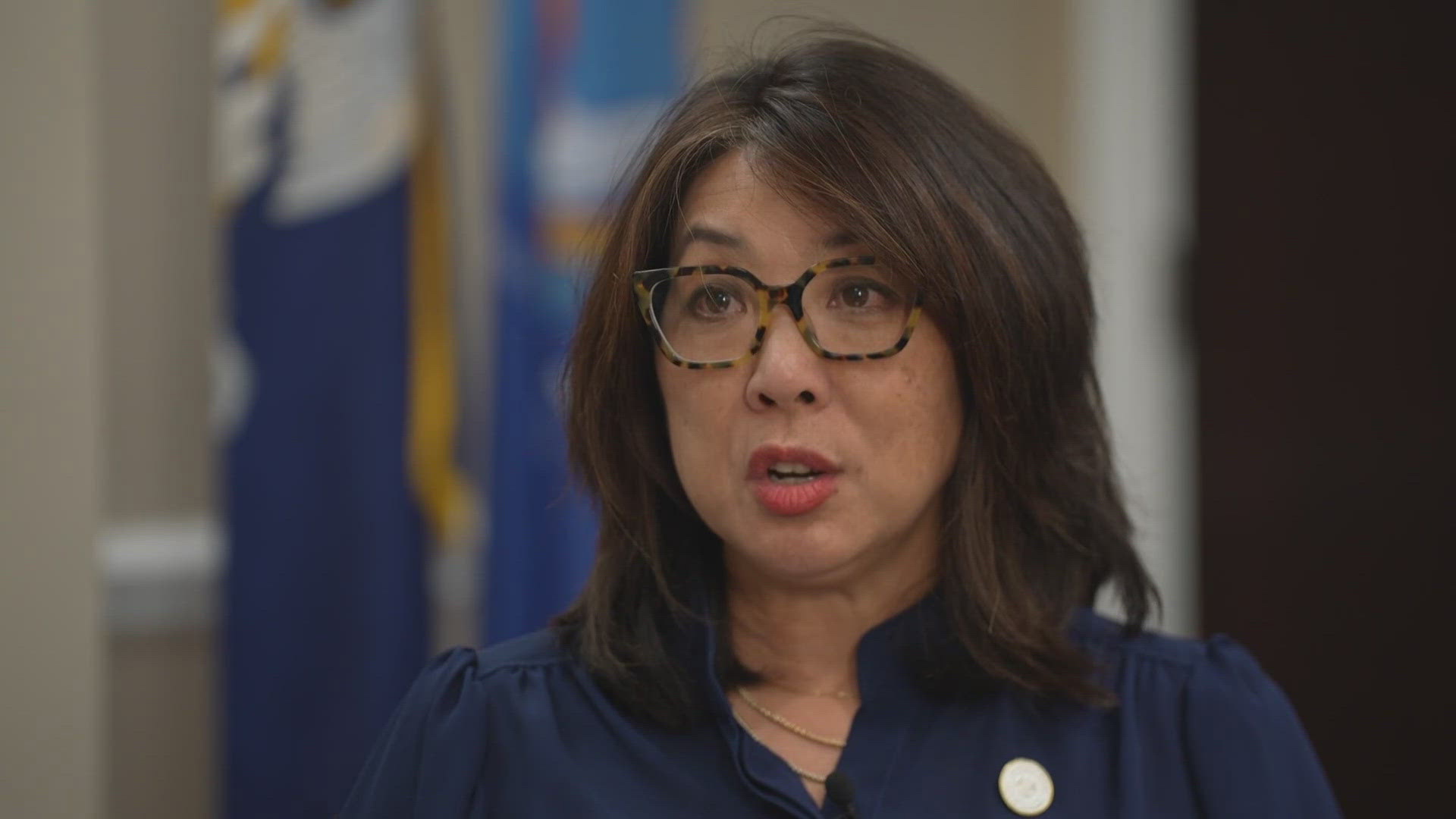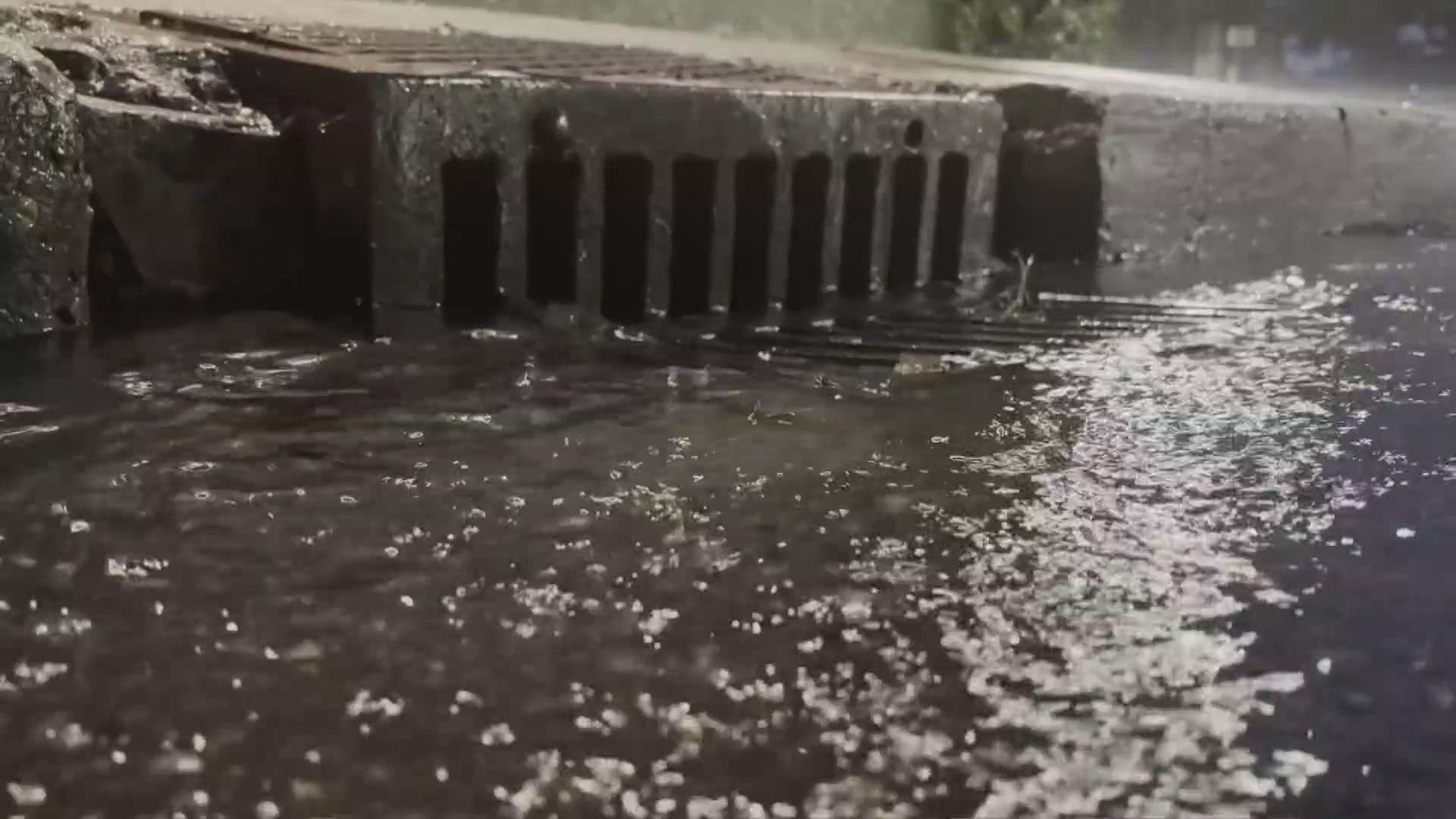JEFFERSON PARISH, La. — Amid a simmering political scandal, Jefferson Parish voters bit the bullet in December 2016 and renewed a tax for drainage improvements.
But the following year, the Parish Council decided not to raise the tax to the highest rate authorized by voters, eschewing an estimated $45 million over the next decade for upgrading the drainage system.
Now, almost seven years later, about 300 families whose homes flooded in Hurricane Francine -- including 264 in Kenner alone -- are left wondering how their fate may have been different if $50 million in pending drainage improvements had benefited from that extra funding starting in 2017.
Two electric pumps at the Duncan Canal drainage station in Kenner failed the night of Francine. Parish Public Works Director Mark Drewes said he and his team learned the next day that an electric starter on one of the pumps was defective and the other pump simply overheated.
Pumps controlled by Louis Armstrong International Airport also failed, exacerbating flooding in the nearby Kenner streets.
In addition to maintenance issues on existing pumps, there was also the question of how additional pumps at planned stations might have changed the equation. The parish wants to spend $15 million on a new pumping station in the Woodlake subdivision, to pump floodwater over the Duncan Canal and directly into the LaBranche Wetlands, but that project is stuck in the design phase.
“People pay taxes to get some kind of return and not damage their own house,” Kenner Mayor Mike Glaser said. “And that's kind … where the aggravation in government comes, is when you say you have this whole system, everything's running, and it fails.”
In May 2017, when the Jefferson Parish Council first considered raising the drainage tax rate from 4.64 mills to the maximum rate approved by voters of 6.0 mills, Jennifer Van Vrancken was the lone vote in favor.
The parish president at the time, Mike Yenni, also wanted the rate raised to 6.0 mills and the council considered it again in October 2017. That time, then-Councilmen Mark Spears and Paul Johnston, who said he had been confused the first time around, joined Van Vrancken to raise the rate, but it failed 4-3.
“It was mind-boggling to me at the time that we would shortchange our drainage funding. It's mind-boggling to me now,” she said. “I know some (council members) were saying, ‘Oh, we don't want to cost taxpayers any more money.’ But look what you've cost them now.”
At the time, some council members said the drainage system, after it had been revamped over the previous 20 years following massive flooding in May 1995 that damaged 21,000 homes, was the envy of the region – in stark contrast with the disastrous system next door in New Orleans.
But in December 2016, parish leaders were asking voters to renew the tax shortly after they had rejected similar proposals for the sewerage and water systems. What’s more, they were doing so amid a major political scandal – just three months after WWL Louisiana broke the story that Yenni had sent sexually explicit texts to a 17-year-old.
Yenni’s administration determined the full 6.0 mills would yield $45 million more in revenues than the 4.64-mill rate, which would have given the parish a critical leg up to address a wish list of drainage projects that Yenni pegged at $100 million.
But then-Councilwoman Cynthia Lee Sheng said the political climate was so tenuous, that they feared voters might not approve the drainage tax at all if they thought it could lead to a tax increase. Even members of the Yenni administration told the Bureau of Governmental Research before the millage vote that they favored keeping the current tax rate of 4.64 mills, at least temporarily, according to a BGR report ahead of the December 2016 millage vote.
“The business community actually approached us and said, ‘Hey, just take the money you have now. Let's just try not to lose the whole thing and try to save what we can in this bad time. And we can come back later when things are not the same way politically,’” Lee Sheng now recalls. “And we never did.”
The council considered raising the rate to 6.0 mills in March and October 2017. It failed both times, with some on the council feeling they had committed not to raise the rates, even though the rate had previously been set at 6.0 mills when the drainage tax passed in 2008.
“My concern is if we tell people, ‘It’s not a new tax,’ and (then) their bill goes up,” Lee Sheng said at a council meeting in October 2017.
Now, Lee Sheng is the parish president, and she’s the one who has to deal with the fallout from that decision.
“I'm not someone who wants to look back and place blame,” she said. “I mean, we take full responsibility for this, and we're going to work toward the future of what went wrong and how to get more resources so that this doesn't happen again.”
She said it’s important to keep last week’s failures in perspective. The heavy rainfall at the tail end of Francine would have overwhelmed the drainage system even if some of the pumps hadn’t failed, she said. And she still believes the parish should celebrate the improvements from the SELA projects following the May 1995 flood.
“No consolation to the 300 families that flooded (in Francine), but we were talking about 21,000 structures that flooded before we made these improvements,” she said. “And I think it's not fair to just pinpoint one moment in time and not look at the bigger picture.”
That bigger picture is that major drainage improvements take time. Lee Sheng noted she’s been advocating for a pump station project on Veteran’s Boulevard at the 17th Street Canal for the last 12 years, and it’s still under construction.
She and Van Vrancken agree that, like the 1995 flood, Hurricane Francine should drive the parish into a new series of drainage system improvements. But Lee Sheng said it’s on the council to set those priorities.
“We have had a lot of influx of money in this parish really since … I've been parish president,” she said. “And if you're on the legislative side and drainage is the issue that … you think is the most pressing issue, the council at any time can raise those funds.”
► Get breaking news from your neighborhood delivered directly to you by downloading the new FREE WWL-TV News app now in the IOS App Store or Google Play.


